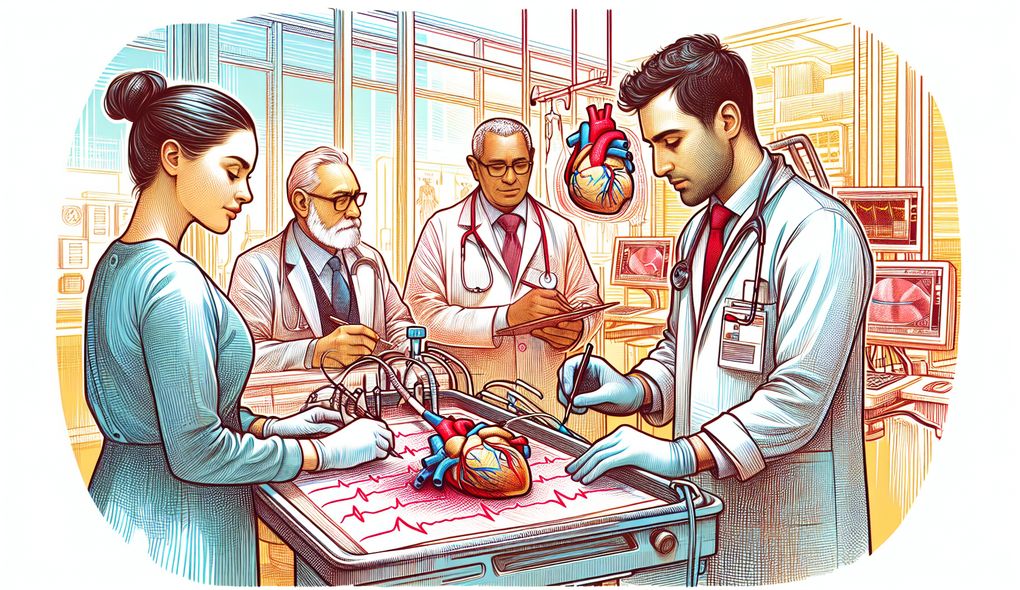Have you ever encountered a situation where you had to deal with a difficult patient? How did you handle it?
INTERMEDIATE LEVEL

Sample answer to the question:
Yes, I have encountered a situation where I had to deal with a difficult patient. It was during my second year of residency in a busy cardiology department. I had a patient who was extremely anxious and resistant to any medical intervention. They refused to cooperate with the necessary tests and procedures, making it challenging to properly diagnose and treat their condition. To handle this situation, I took a patient-centered approach. I spent time talking to the patient, understanding their fears and concerns. I explained the importance of the tests and procedures for their health and well-being. I reassured them and built trust. Eventually, the patient agreed to undergo the necessary tests and procedures, and I was able to provide them with the appropriate medical care.
Here is a more solid answer:
Yes, I have encountered a situation where I had to deal with a difficult patient. It was during my second year of residency in a busy cardiology department. I had a patient who was extremely anxious and resistant to any medical intervention. They refused to cooperate with the necessary tests and procedures, making it challenging to properly diagnose and treat their condition. To handle this situation, I employed strong communication skills and demonstrated patience and empathy. I actively listened to the patient, understanding their fears and concerns. I reassured them about the importance of the tests and procedures for their health and well-being. I took the time to address their questions and provide clear explanations. Additionally, I involved a multi-disciplinary team, including psychologists and social workers, to support the patient's emotional well-being. Through consistent communication, building trust, and involving additional support, I was able to gradually gain the patient's cooperation and provide them with the necessary medical care.
Why is this a more solid answer?
The solid answer provides more specific details about the candidate's actions and skills. It highlights the candidate's strong communication skills, patience, and empathy in dealing with the difficult patient. It also mentions the involvement of a multi-disciplinary team to support the patient's emotional well-being. However, it can still be improved by including examples of problem-solving and addressing potential challenges faced during the process.
An example of a exceptional answer:
Yes, I have encountered a situation where I had to deal with a difficult patient. It was during my second year of residency in a busy cardiology department. I had a patient who was extremely anxious and resistant to any medical intervention. They refused to cooperate with the necessary tests and procedures, making it challenging to properly diagnose and treat their condition. To handle this situation, I employed strong communication skills, patience, empathy, and effective problem-solving. I actively listened to the patient, understanding their fears and concerns. I reassured them about the importance of the tests and procedures for their health and well-being, addressing their questions and providing clear explanations. I also took the time to explore alternative approaches and options, considering the patient's preferences and comfort. Realizing that building trust was crucial, I involved the patient's family in the discussions and care plan, ensuring their support and understanding. Moreover, I collaborated closely with psychologists and social workers to provide emotional support to the patient, addressing any underlying psychological barriers. Additionally, I consulted with my experienced colleagues to gain insights and alternative strategies to approach the situation. Through consistent communication, building trust, involving the patient's family, utilizing alternative approaches, and seeking guidance from colleagues, I was able to gradually gain the patient's cooperation and provide them with the necessary medical care.
Why is this an exceptional answer?
The exceptional answer includes specific examples of problem-solving and addresses potential challenges faced during the process. It demonstrates the candidate's ability to adapt and think creatively in handling the difficult patient. It also emphasizes the importance of involving the patient's family and collaborating with psychologists and social workers for comprehensive care. The candidate's willingness to seek guidance from experienced colleagues shows their dedication to continuous learning and professional development.
How to prepare for this question:
- Reflect on past experiences dealing with difficult patients, identifying the skills and strategies that have worked effectively.
- Familiarize yourself with different communication techniques and approaches to build rapport and trust with patients.
- Research the role of psychology and social work in healthcare, understanding how these disciplines can support patient care.
- Stay updated with the latest advancements and evidence-based practices in interventional cardiology to provide the best care options for patients.
- Practice problem-solving exercises and scenarios to enhance your ability to think critically and creatively in challenging situations.
What are interviewers evaluating with this question?
- Communication Skills
- Patience and Empathy
- Problem-Solving

